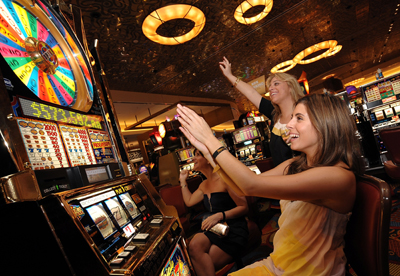
In the world of gambling, in which chance and strategy meet, a unique tapestry of beliefs unfolds—one that weaves together luck, fate, and the enigmatic nature of casino games. Casinos, bustling with excitement and anticipation, are not just places for placing bets; they are also arenas where superstitions thrive. Ranging from the novice player to the seasoned gambler, these mysterious practices often shape how individuals approach the games they play, holding the belief that their actions can impact the outcome in ways that go beyond mere probability.
When players gather around roulette wheels, blackjack tables, and slot machines, the atmosphere is thick with stories of lucky charms, rituals, and codified behavior that defy logic yet provide a sense of comfort. It could be the case that it’s wearing a specific outfit, following a particular sequence of bets, or even avoiding certain numbers, the attachment to various superstitions reflects a deep-rooted desire to manipulate the uncontrollable. This article delves into the captivating world of casino game superstitions, exploring the beliefs that simultaneously entertain and mystify those who dare to play.
Historical Origins of Superstitions
Casino games have long been connected with an host of superstitions that trace to primitive cultures. link 77win The roots of these notions can be connected to humanity’s intrinsic need to influence the uncertain outcomes connected with chance and chance. In primitive civilizations, activities of chance were often connected to religious practices. Gamblers would seek favor or request favor from deities, believing that their actions could influence the outcomes in their advantage. This basis laid the groundwork for the variety of superstitions that proliferated as betting evolved over time.
During the medieval age, gambling became a popular hobby across Europe, and with it, a colorful tapestry of superstitions developed. Participants adopted various rituals and charms, believing they could change the consequences of games. The value of digits, in particular, started to show in superstitions pertaining to card games and dice. The number seven was often considered auspicious, while various numbers carried bad connotations. These notions mirrored the societal contexts of the time, changing as they moved through generations and adapted to new gaming environments.
As gambling houses developed in the seventeenth century, particularly in Italy and the French nation, the atmosphere surrounding gambling became imbued in mystique. The growing availability of gambling activities allowed for the dissemination and growth of superstitions among players. Concepts like lucky charms, designated seating locations, and rituals gained prevalence, creating a unique culture within betting houses. As these practices continued to thrive, they became integral to the identity of casino games, illustrating how historical developments and society shape the convictions that influence how participants interact with luck.
Widespread Gambling Superstitions
Superstitions surrounding gambling games are abundant and varied, reflecting the dreams and anxieties of gamblers as they engage in chance-based activities. One of the most common views is that certain numbers bring luck or misfortune. For example, the digit 7 is often seen as a favorable number, frequently sought after by players looking for a positive outcome. Conversely, the number 13 is routinely considered cursed, leading many gamblers to avoid it during their gaming periods.
A frequent belief relates to practices that gamblers believe can influence their odds. Whether blowing on dice before a throw, using a particular hand to place a bet, or even putting on particular items of attire, many people feel that these actions can sway luck in their favor. These practices offer a feeling of power in an otherwise random environment, reinforcing the idea that luck can be created through individual beliefs and customs.
Finally, the environment and atmosphere of the gambling house itself contributes to superstition. Many players suggest that the presence of specific symbols, such as four-leaved clovers or fortunate tokens, can enhance their odds of success. Additionally, gamblers might hold to the belief that victory streaks can be halted by mundane events, such as someone passing by or a spill at the gaming surface. The shared atmosphere in a casino can amplify these beliefs, creating a communal culture of myths that goes beyond individual encounters. tải app 77win
Impact of Superstitions on Players
Superstitions play a crucial role in the mindset of gamblers, often influencing their behavior and decision-making. Many gamblers believe that luck can be influenced through different rituals, such as wearing a lucky charm, choosing particular hues, or steering clear of particular digits. This dependence on superstitions can create a sense of control in an environment that is inherently unpredictable. Players frequently feel more confident and engaged when they think that their actions could sway the result of a game in their advantage.
The impact of these superstitions extends beyond singular players, affecting the general atmosphere inside the casino. For example, a player who believes in the luck of a certain slot machine might attract a gathering, as onlookers are fascinated by their apparent luck. This collective belief can amplify excitement and create a dynamic environment, leading to an interesting experience even for those who may not necessarily be believers themselves. The buzz around specific games can lead to higher participation and longer playing sessions, supporting the casino’s vibrant social scene.
In some cases, superstitions can lead to negative effects for players. Relying too heavily on rituals can result in poor gambling decisions, as some may ignore basic strategies in favor of baseless beliefs. Additionally, the stress to perform rituals may increase anxiety and tension, detracting from the pleasure of the experience. Ultimately, while superstitions can enhance the thrill of playing casino games, they can also lead to unwise choices that overshadow the enjoyment and entertainment intended in the casino experience.
